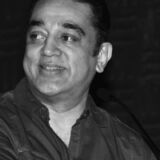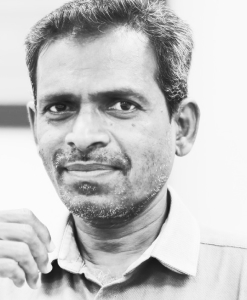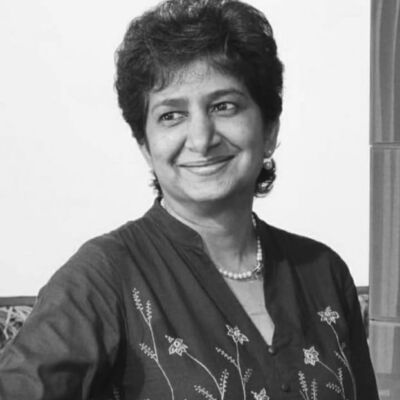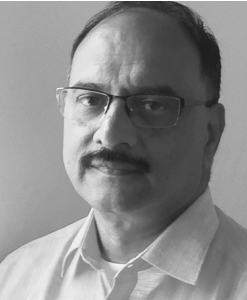Authorized Collaborative Institution of Alagappa University
(CHENNAI CAMPUS) – 3 YEARS
Develop your understanding of web page design, then utilize coding to add interaction. Learn to appreciate the formal aspects of various vector animation techniques, interactive animation designs, and animation in general. Develop an understanding of camera motions and shots. The focus of this lesson is on the various steps required to create a film that appears professional, from the first pitch through the finished product. Show improvement in the fundamentals of animation and drawing, including the ability to calculate and employ appropriate frame rates.
Learn the basics of editing, and describe the rules for camera editing and editing concepts. Advanced figurative art should be contrasted and compared, and it should be studied utilizing expressive dimensions, figure drawing theory, and theory. Learn about shapes, color, and text. Describe how key frames and animation control animation Learn the fundamentals, about rendering particles, about collider objects, and about particle attributes.
Students will be able to understand the concept and link between 3D model geometry, UV layouts, material/texture mappings, and mapping methodologies by understanding the dynamics of Soft and Rigid Bodies; Learn about the textures and materials used to create the character. Learn more about complicated composing techniques, match-moving, and 3D problem-solving techniques to create better short scenes and short films. Recognize the advantages of creativity when creating different types of animations.
Programme Specific Objectives
- Abilities to build websites using HTML and CSS to add interactivity and styling, web banners using image editing software .
- proficiency in using a DSLR cameras, digital camera’s lens, various camera perspectives, vector motion techniques.
- Utilize vocabulary appropriate for 2D and vector graphics, be proficient with competent in video editing .
- working knowledge in principles of animation, including both traditional and digital animation design..
- create an story visually to engaging fashion film, various stages of a professional procedure.
Programme Outcome
On successful completion of the programme, the student will be able to:
- scenario preparation in Basics & Audio Sync for videos, adding motion effects, editing, altering, exporting.
- Depict the expertise in representing dynamic characters from the front, the side, and the back , hands, feet, and all of the muscles in the arms and legs.
- Examine the pictures and shapes using state-of-the-art tools, produce motion graphics sequences of photos and video sequences in 2D and/or 3D..
- working understanding of Soft/Rigid Body Dynamics of fluid effects and liquid simulation, the 3D programme and interface of tools and techniques.
1. ELIGIBILITY:
i) For Admission:
A pass in the Higher Secondary Examination (Academic / Vocations Stream) conducted by the Government of Tamilnadu, or an examination accepted as equivalent thereto (like PUC) by the Syndicate, subject to such conditions as may be prescribed therefore.
Any diploma / UG/Equivalent students across india.
Age limit: below 25 years
ii) For the Degree: The candidates shall have subsequently undergone the prescribed course of study in the Department of Fine Arts, Alagappa University for a period of not less than four academic years, passed the examinations prescribed and fulfilled such conditions as have been prescribed therefore.
2. DURATION:
The programme is for a period of four years.
Each academic year shall comprise of two semester viz. Odd and Even semesters. Odd semesters shall be from June / July to October / November and Even Semesters shall be from November / December to April /May. There shall be not less than 90 working days which shall comprise 450 teaching clock hours for each semester. (Exclusive of the days for the conduct of University end-semester examinations).
3. MEDIUM OF INSTRUCTION
The medium of instruction for Bachelor of Fine Arts (B.F.A.) Programmes in Filmmaking is English and Tamil.
4. THE CBCS SYSTEM:
Bachelor of Fine Arts (B.F.A.) Programmes in Filmmaking shall be run on Choice Based Credit System (CBCS). It is an instructional package developed to suit the needs of students to keep pace with the developments in higher education and the quality assurance expected of it in the light of liberalization and globalization in higher education.
5. COURSES IN PROGRAMMES:
The B.F.A. Programme consistmany courses. The term ‘course’ is applied to indicate a logical part of the subject matter of the programme and is invariably equivalent to the subject matter of a ‘paper’ in the conventional sense. The following are the various categories of courses suggested for the UG programmes.
Part I– Language Courses (LC) (Tamil).
Part II– English Language courses (ELC) or special subject designed in lieu of.
The Language courses and English Language Courses are 2 each in number and the LC and ELC are meant to develop the students’ communicative skill at the UG level. Core courses are the basic courses compulsorily required for each of the programme of study.
Part III includes Core Course (CC), Allied Course (AC) and Elective Course (EC).
i) Core courses are the basic courses compulsorily required foreach of the programme of study. These will be related to the subject of programme in which the candidate gets his / her degree. The number of Core Theory Courses shall be 18 with some course aligned with Practical .There will be total 4 projects at end of each year for Bachelor of Fine Arts (B.F.A.) Programme in Filmmaking.
Part IV: It consists of five categories:
i. a) Those who have not studies Tamil upto XII standard and taken a Non-Tamil language under Part I shall take Tamil comprising of two courses (level will be at 6th Standard).
b) Those who have studies Tamil upto XII standard and taken a non- Tamillanguage under Part I shall take advanced Tamil comprising of two core subjects.
6. SEMESTERS:
An academic year is divided into two Semesters. In each semester, courses are offered in
15 teaching weeks and the remaining 5 weeks are to be utilized for conduct of examinations and evaluation purposes. Each week has 30 working hours spread over 5 / 6 days a week.
7. CREDITS:
The term “Credit” refers to the weightage given to a course, usually in relation to the instructional hours assigned to it. For instance, a six hour course is assigned four credits/. However, in no instance the credits of a course can be greater than the hours allotted to it.
One Credit is equivalent to one hour of teaching (lecture/tutorial) or two hours of practical work/project work/fieldwork. However, all courses need not carry the same weightage.
The total minimum credits, required for completing Bachelor of Fine Arts (B.F.A.) Programmes in Filmmaking are 160. The details of credits for individual components and individual courses are given.
8. COURSE:
Each course is to be designed variously under lectures / tutorials / laboratory or field work / seminar / practical training / Assignments / Term paper or Report writing etc., to meet effective teaching and learning needs.
9. CONDONATION:
Students must have 75% of attendance in each course for appearing the examination. Students who have 74% to 70% of attendance shall apply for condonation in the
prescribed form with the prescribed fee. Students who have 69% to 60% of attendance shall apply for condonation in prescribed form with the prescribed fee along with the Medical Certificate.
Students who have below 60% of attendance are not eligible to appear for the examination. They shall re-do the semester(s) after completion of the programme.
10. CONFERMENT OF THE BACHELOR’S DEGREE
A candidate shall be eligible for the conferment of the Degree of Bachelor of Fine Arts (B.F.A.) in Filmmaking only if he / she has earned the minimum required credits for the programme prescribed therefore (i.e. 160 credits).
11. RANKING: UNIVERSITY RANK EXAMINATION
1. The University Rank Examination shall be conducted for the toppers (first toppers) of all the colleges (having passed their examinations in the first appearance within the prescribed duration of the programme. Absence from an examination shall not be taken as an attempt) including autonomous / non-autonomous ones and they are required to take two examinations.
2. The questions papers of the examinations comprise of objective type questions covering the core courses in each of the Programmes generally followed by both autonomous / non-autonomous streams.
3. The top scorers in this University Rank Examination would be declared as University Rank Holders, irrespective of their grades secured in their semester examinations.
4. Three Ranks shall be given for each of the Programmes if the student strength is below 20; upto 5 Ranks if the student strength is above 20 but below 50; upto 10 Ranks where the student strength exceeds 50 but less than 100; and upto 20 Ranks if the student strength is 100 and above.
12. GRIEVANCE REDRESSAL COMMITTEE
The College shall form a Grievance Reprisal Committee for each course in each department with the Course Teacher and the HOD as the members. This Committee shall solve all grievances relating to the Internal Assessment marks of the students.
13. TRANSFER OF CREDITS
Students are permitted to transfer their course credits from Centre for Distance Education (CDE) of AlagappaUniversity to Regular Stream and vice-versa.
14. REVISION OF REGULATIONS AND CURRICULUM
The University may from time to time revise, amend and change the Regulations and Curriculum, if found necessary.
B.Sc. Media Technology
|
Semester |
Sub Code | Subject | Credits | hours | Int.,Max | Ext.,
Max |
Total |
|
I |
11 | Part-I Language Practical (Tamil / Hindi / French) – I | 3 | 2 | 25 | 75 | 100 |
| 12 | Part II – Language Practical – English-I –Prose and Communication Skills | 4 | 2 | 25 | 75 | 100 | |
| 13 | Introduction to Visual Communication | 5 | 6 | 25 | 75 | 100 | |
| 14 | Design Fundamentals | 5 | 6 | 25 | 75 | 100 | |
| 15 | Image Editing Techniques – Practical | 5 | 6 | 25 | 75 | 100 | |
| 16 | Graphic Design – Practical | 5 | 8 | 25 | 75 | 100 | |
|
II |
21 | Part-I Language Practical (Tamil / Hindi / French) – II | 3 | 2 | 25 | 75 | 100 |
| 22 | Part II – Language Practical – English-II – Prose, Extensive Reading and Communications Skills | 3 | 2 | 25 | 75 | 100 | |
| 23 | Web Designing | 5 | 6 | 25 | 75 | 100 | |
| 24 | Digital Photography | 5 | 6 | 25 | 75 | 100 | |
| 25 | Web Designing – Practical | 5 | 6 | 25 | 75 | 100 | |
| 26 | Foundation Art – Practical | 5 | 6 | 25 | 75 | 100 | |
| 27 | Environmental Studies | 2 | 2 | 25 | 75 | 100 | |
|
III |
31 | Part II – Language Practical – English – III – Communicative Skills | 3 | 2 | 25 | 75 | 100 |
| 32 | Interactive Animation Techniques | 5 | 6 | 25 | 75 | 100 | |
| 33 | Pre Production & Shooting Techniques | 5 | 6 | 25 | 75 | 100 | |
| 34 | 2D Graphics & Animation | 5 | 6 | 25 | 75 | 100 | |
| 35 | Interactive Animation Techniques – Practical | 5 | 5 | 25 | 75 | 100 | |
| 36 | 2D Graphics & Animation – Practical | 3 | 5 | 25 | 75 | 100 | |
|
IV |
41 | Part II – Language Practical – English – IV – Employability Skills | 3 | 2 | 25 | 75 | 100 |
| 42 | Non linear Editing | 5 | 6 | 25 | 75 | 100 | |
| 43 | Advanced Art | 5 | 6 | 25 | 75 | 100 | |
| 44 | Non linear Editing – Practical | 5 | 6 | 25 | 75 | 100 | |
| 45 | 3D Design – Practical | 5 | 6 | 25 | 75 | 100 | |
| 46 | Value Education –Skill Based Subject (Practical) | 3 | 4 | 25 | 75 | 100 | |
|
V |
51 | Motion Graphics | 4 | 6 | 25 | 75 | 100 |
| 52 | Dynamics Simulation | 4 | 6 | 25 | 75 | 100 | |
| 53 | Motion Graphics – Practical | 5 | 6 | 25 | 75 | 100 | |
| 54 | Dynamics Simulation – Practical | 5 | 6 | 25 | 75 | 100 | |
| 55 | Electives
A. Advanced Modeling & Texturing B. Rigging & Animation C. Advanced Compositing Techniques |
5 | 6 | 25 | 75 | 100 | |
| VI | 61 | Internship | 5 | 15 | 25 | 75 | 100 |
| 62 | Project | 5 | 15 | 25 | 75 | 100 | |
| Total | 140 | 180 |
3200 |
REVISION OF REGULATIONS AND CURRICULUM
The University may from time to time revise, amend and change the Regulations and Curriculum, if found necessary.
- All applicants will undergo Interview and on selection he/she will pay the course fee.
- Eligibility: Students who have completed Higher Secondary/Senior Secondary/Junior College may apply. International students may apply complying with the relevant/ equivalent requirements mentioned above. Where applicable, candidates must complete all arrears before joining LVPCMS.
- Once selected, Semester Fee details will be communicated to the student in the admission letter. There is no Refund for any course registered at LVPCMS.
- Payment has to be done through a demand draft drawn in favour of ‘L V Prasad College of Media Studies’, payable at Chennai or through Bank Transfer. Cash payment will not be accepted.
Minimum Eligibility Criteria
- Pass in Plus two school examination or equivalent
- Open Schooling is also permitted*.

Don’t lose your innocence, your naiveté and always watch and make films with passion. I envy you for this opportunity you have, to learn and earn a certificate in 2 years, while it took me 20 long years to achieve it on my own.

I am impressed that L V Prasad College of Media Studies has successfully completed 7 years. I am sure this batch of filmmakers will make films with sensitivity which is the need of the hour in Indian Cinema.




